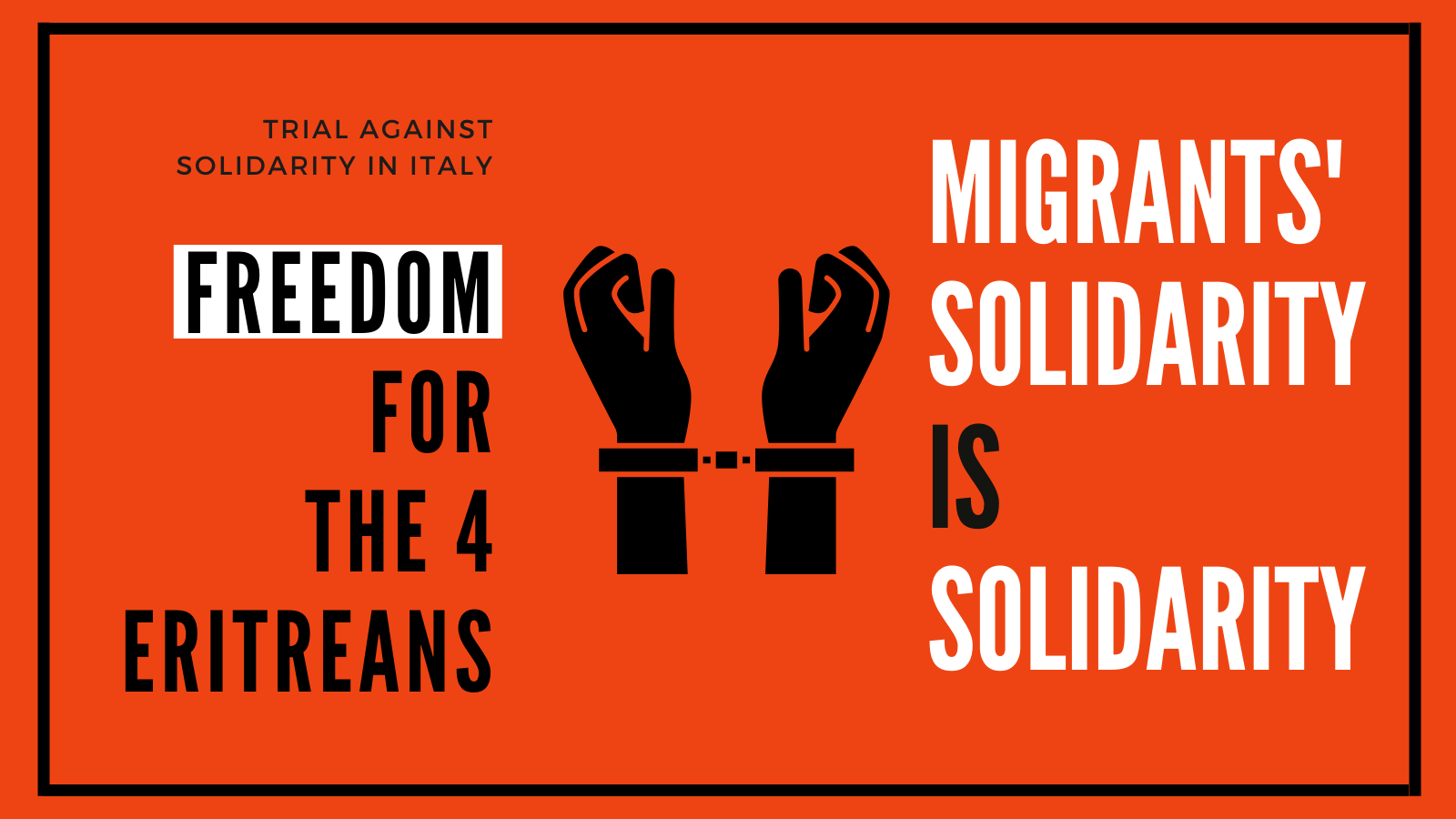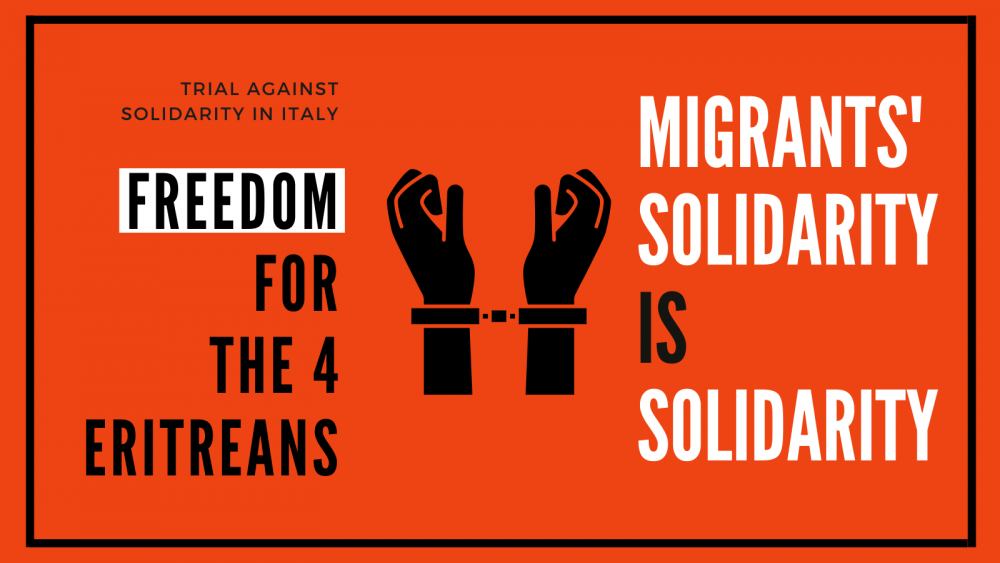Migrants’ solidarity is solidarity!
Legal Clinic Roma 3, borderline-europe, Iuventa crew
On 20 May 2022, the Italian supreme court will decide the future of four Eritrean refugees accused of ‘aiding and abetting illegal immigration’. The acts at the center of the accusation are for having given aid and solidarity to fellow Eritrean citizens in Italy who had fled the East African dictatorship. The defendants have already spent two years in prison, between 2016 and 2018, accused of being part of a criminal network dedicated to human smuggling. This accusation crumbled in the first trial, which failed to demonstrate neither any participation in a criminal network, nor any aim to make profit from the assistance given to friends and relatives.
In Palermo, a similar trial that came out of an investigation connected to the one in Rome, ended up with an Eritrean carpenter being imprisoned for nearly three years, accused of being the head of the same international criminal organization – before it was demonstrated that the Italian authorities had pinned the wrong man in a case of mistaken identity.
The accusation that still stands is that of having helped migrants move through Italy and ¥towards other countries, connected to actions such as buying train tickets for national train lines, or having bought food, clothes or a place to stay for people in a moment of need. In many cases, the transit of migrants towards other countries has not even been proven, while in others the supposedly ‘offended persons’ have actually given testimony in support of the defendants. But the what the law ‘protects’ by establishing the crime of facilitating illegal immigration isn’t people, but national borders.
A vast number of investigations that lead to migrants being accused of this crime end up with an acquittal, or in alternative in drastically reduced charges. But even in these cases, the result is often achieved all the same: criminalizing migrants’ own community networks, the very infrastructure of solidarity that provides them with freedom of movement. This is the same solidarity that allows them to flee dictatorships and warzones, patriarchal violence and colonial violence, the same solidarity that allows people to dream of being able to make decisions about their own lives.
This is the same cruel logic that criminalizes solidarity of sea rescues: in these cases too, even when the trials end with exonerations or a drastic limitation of the charges, the ships and their crews nevertheless end up being blocked at land for months or years. On May 21st, the trial resulting from Italy’s most ambitious investigation against sea rescue NGOs will start, which began with the seizing of the Iuventa ship in 2017 and later the ships of Doctors Without Borders and Save the Children. And this is the same logic that has seen thousands of migrants criminalized for driving boats across the Mediterranean, as so-called 'people smugglers'.
The cases of migrants who have been criminalized, however, have not received any of the media attention that has quite rightly been given to the activists who save lives at sea. The charges are the same as those against the activists from the northern Italian group ‘Linea d’Ombra’, in Trieste – a case in which the judge decided to throw the case out of court, recognizing that buying train tickets for journeys within Italy did not imply facilitating illegal transport, and also recognized the spirit of solidarity that motivated the defendants’ actions. Another similar case is that of the activists of the Baobab center, who were acquitted of the same charges on May 3 because, according to the judge, there was no case to answer.
What will be decided on May 20th is a trial that concerns all of us, because solidarity decides if solidarity remains solidarity even when migrants themselves extend it!
Solidarity is a political act that stands up against a border regime that causes thousands of deaths on Europe’s external borders, and maintains an apartheid within those borders. All too often, when solidarity is demonstrated by migrants towards other migrants, they are then compared to human smugglers – a false comparison that is only made easier by the lack of public attention to these trials. The decision that will be made on May 20th concerns all of us because it risks crystallizing an interpretation that puts border controls first and protecting people’s lives after.


